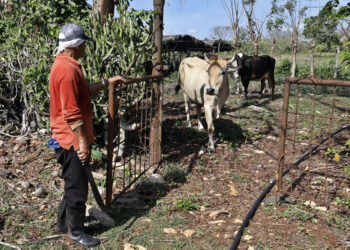The June edition of OnCuba is special edition. For me, the subject of Chinese immigration to our beautiful country is a very interesting one. The Chinese have had an undeniable impact on my life,and have created many memories.
For example, rice (it’s very hard for me to eat a meal without rice), Cuban fried rice, bean sprouts (which we call “Chinese beans”), my grandmother’s Chinese fans, the popular songs about “the Chinese man who fell into a well” and “the Chinese girl seated in the café,” the little pot of Chinese balm that occupies a tiny space in one of my drawers. Oh, and who can forget all the adages referring to the Chinese?
Have you ever wondered what we mean by “a Chinese tale” (un cuento chino)?
I have a number of Chinese friends, Chinese from China and Chinese from Cuba, and while they have explained what it means when somebody says “you have a Chinese behind you” — a popular, playful saying among Cubans, referring to bad luck, and sometimes I’ve had a whole lot of that — none of them have ever explained the origin of the “Chinese tale” expression, leaving me with no alternative but to devote myself to reading to satisfy my curiosity.
Those with knowledge about this subject say that the “Chinese tale” expression comes from interest in those far-off lands, and the tall tales told by European travelers and merchants who would make the journey on the Silk Road from Beijing to Damascus and other cities, bringing fables and legends full of fantasy and exaggerated anecdotes that would leave the most intelligent individuals open-mouthed, turning the gullible and unsuspecting into believers.
A legend and anecdote from China (a Chinese Tale)
The art of slaying dragons
Zhu Pingman went to Zhili Yi to learn how to slay dragons. He studied for three years and spent almost his entire fortune to learn as much as possible about the subject.
But there were so few dragons that Zhu could not find a place to practice his art.
Zhuang Zi
The desire to believe in something is an intrinsic human trait; we settle with replacing our lack of knowledge with belief, and we do not question. I have always thought that it is extremely healthy to question. It is a progressive action that brings change; it is evolution.
A Chinese who tells you a tale is acceptable; a “Chinese tale” told to you by somebody who is not Chinese is dubious – question it…. Here is my list of things that I no longer wonder about, because I consider them to be “Chinese tales”:
That first kiss with which you swore eternal love.
That Dominican cigars are better than Cuban ones.
Politicians’ promises.
A friend, acquaintance or interested party who claims, confirms and promises, and whose promises have more seasoning than flavor.
The justification of incoherent and obsolete policies.
That habit is stronger than love.
That there is no evil that lasts one hundred years.
That we are unable to overcome, be happy and believe in love and forgiveness.
That the Embargo imposed by the U.S. government on my country is not an unjust and cruel act.
Boundaries and borders.
That this magazine, OnCuba, is not your favorite.










